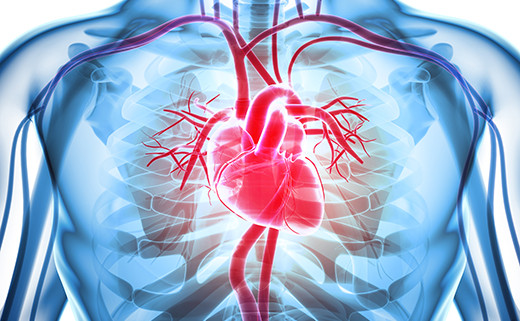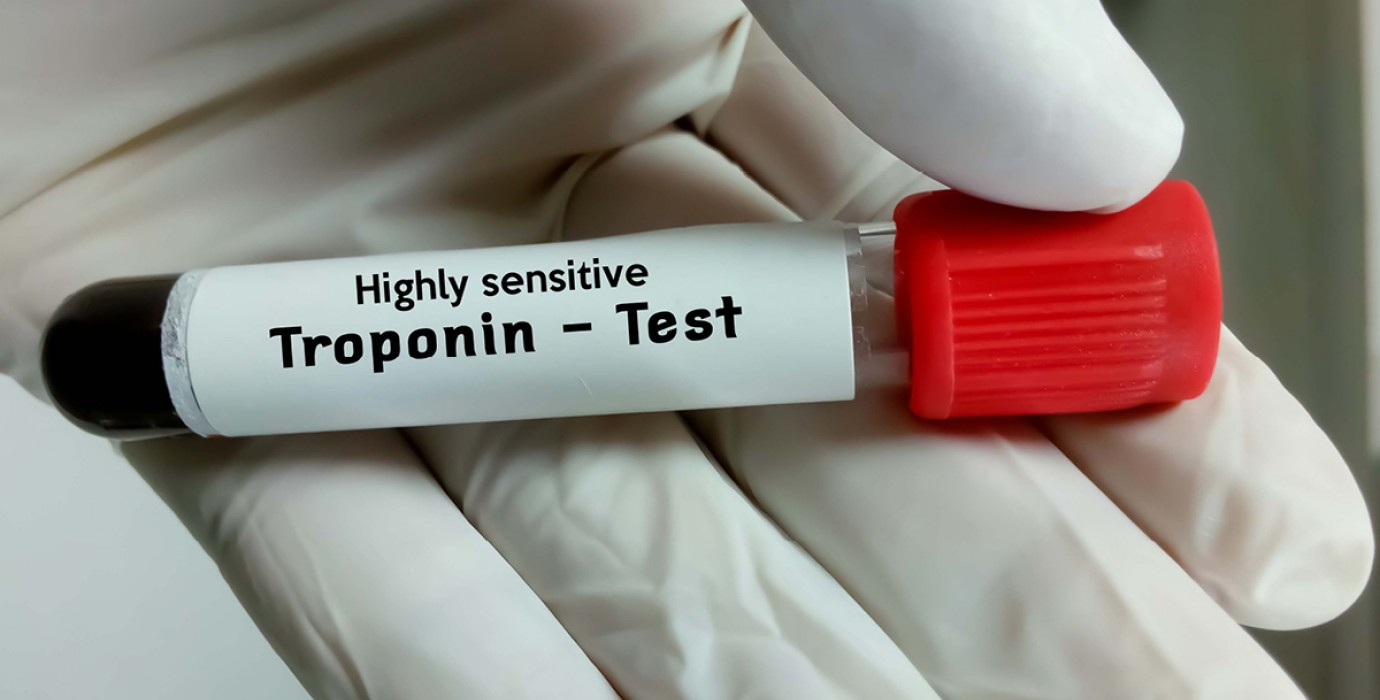Definisi
Pemeriksaaan creatine kinase (CK)-MB merupakan pemeriksaan laboratorium klinis yang dilakukan untuk menilai kadar CK-MB di dalam darah.
CK-MB merupakan bagian terkecil dari CK yang terutama terdiri dari subunit M dan B pada cairan di dalam sel jaringan tubuh, terutama jaringan sel jantung. Jaringan sel jantung (miokardium) memiliki sekitar 30% CK-MB, sehingga disebut sebagai enzim CK yang spesifik pada jantung.
Selain itu, CK-MB juga dapat ditemukan pada sel-sel otot tubuh sekitar 5–7% dari CK total di dalamnya. Oleh karena itu, pada beberapa kasus, nilai CK-MB dapat ditemukan memiliki nilai yang tinggi pada atlet yang sering bertanding melalui adu fisik atau daya tahan.
CK merupakan suatu enzim (protein yang berperan dalam reaksi kimiawi tertentu) yang terutama banyak berada di dalam sel-sel jantung dan otot-otot tubuh, dengan jumlah yang sedikit di dalam sel-sel otak. CK akan dilepaskan dan ditemukan di dalam darah apabila terdapat kerusakan pada sel-sel di jantung, otot tubuh, dan otak.
Umumnya, jumlah CK sangat sedikit di dalam darah dan kebanyakan CK yang ditemukan di dalam darah tersebut berasal dari sel-sel otot tubuh yang diakibatkan oleh kerusakan sel otot yang minimal selama aktivitas sehari-hari. CK memiliki peran untuk membantu tulang bekerja agar tubuh dapat bergerak dan memberikan tenaga dan kekuatan. CK juga membantu sel jantung untuk memompakan darah ke dalam atau ke luar jantung.
Pemeriksaan CK-MB dapat diminta oleh dokter apabila terdapat keluhan terkait dengan serangan jantung, misalnya nyeri dada yang menjalar seperti rasa tertimpa benda berat, sesak nafas, pusing, mual, atau muntah, berkeringat banyak yang tiba-tiba, mudah lelah, nyeri pada leher, rahang, atau lengan kiri.
Meskipun demikian, pemeriksaan CK-MB terkadang dilakukan bersamaan dengan pemeriksaan troponin yang lebih spesifik untuk mendeteksi kerusakan pada sel jantung. Nilai CK-MB umumnya memiliki rentang normal sekitar 3 – 5% dari nilai CK total atau 5 – 25 IU/L.
Nilai CK-MB dapat meningkat pada penyakit jantung coroner, meskipun saat ini CK-MB sudah mulai digantikan dengan pemeriksaan troponin sebagai penanda yang lebih dipilih untuk menunjang diagnosis ke arah penyakit jantung coroner.
CK-MB mulai dapat terdeteksi di dalam darah pada 4 – 6 jam setelah munculnya rasa nyeri dada pada penyakit jantung coroner, kemudian nilai CK-MB memasuki nilai puncaknya pada 18 – 24 jam, dan nilai CK-MB dapat kembali normal dalam 48 – 72 jam.
CK-MB dapat juga meningkat pada beberapa kasus, misalnya keracunan karbon monoksida, penyakit emboli paru, hipotiroidisme, kecelakaan lalu lintas yang berat, dan distrofi otot.
Nilai CK-MB yang sangat tinggi dapat juga dikaitkan dengan mekanisme pergantian sel otot tubuh pada penyakit polimiositis, dan rabdomiolisis derajat ringan, olahraga dengan intensitas yang sangat berat terutama pada atlet.
Oleh sebab itu, apabila ditemukan nilai CK-MB yang tinggi namun tidak ada tanda kerusakan otot tubuh, dapat diduga bahwa ada kerusakan pada otot jantung yang disebabkan oleh penyakit jantung coroner.
Pemeriksaan CK-MB umumnya dikerjakan bersamaan dengan pemeriksaan lainnya seperti pemeriksaan panel jantung (misalnya CK, troponin), pemeriksaan panel elektrolit (misalnya pemeriksaan natrium, kalium, dan klorida darah) dan panel fungsi ginjal (albumin dan kreatinin urin).
Indikasi
Pemeriksaan ini biasanya dikerjakan pada beberapa kondisi sebagai berikut, yaitu:
- Untuk membantu penegakkan diagnosis gangguan atau penyakit jantung koroner
- Untuk membantu menilai apakah ada gangguan pada sel jantung apabila terdapat keluhan serangan jantung seperti nyeri dada
- Untuk memantau perkembangan penyakit atau kerusakan pada sel-sel otot jantung
Kontraindikasi
Tidak ada kontraindikasi atau kondisi yang membuat seseorang tidak bisa melakukan pemeriksaan ini.
Persiapan Sebelum Pemeriksaan
Tidak ada persiapan khusus sebelum melakukan pemeriksaan CK-MB. Pemeriksaan ini bisa dilakukan dalam keadaan tidak berpuasa. Meskipun demikian, Anda disarankan untuk melakukan konsultasi medis terlebih dahulu kepada dokter sebelum melakukan pemeriksaan masa perdarahan sebab ada beberapa kondisi atau penggunaan obat tertentu yang dapat menganggu hasil laboratorium sehingga tidak menggambarkan kondisi Anda yang sesungguhnya.
Prosedur Pemeriksaan
Pemeriksaan CK-MB umumnya menggunakan sampel serum darah sebanyak 0,25-0,5 ml. Sampel serum darah ini diambil dari pembuluh darah vena dan akan dikumpulkan ke dalam tabung khusus. Petugas laboratorium akan memakai sarung tangan khusus dan APD (Alat Pelindung Diri) saat mengambil sampel pemeriksaan.
Sebelum mengambil darah, petugas akan memasang pita elastis dan membersihkan area penusukan jarum dengan kasa antiseptik. Biasanya petugas mengambil darah di area lipatan siku. Setelah darah diambil dan dimasukkan ke dalam tabung khusus, petugas akan melepas pita elastis yang terpasang, menekan dan membersihkan area penusukan dengan kasa antiseptik. Prosedur pemeriksaan ini hanya berlangsung selama beberapa menit saja. Sampel darah yang telah didapatkan akan diperiksakan menggunakan alat khusus di laboratorium, dan hasilnya bisa diketahui dalam beberapa jam kemudian.
Nilai Normal & Abnormal
Rentang nilai normal CK-MB umumnya tidak dibedakan berdasarkan umur atau jenis kelamin. Secara umum, berikut ini merupakan rentang nilai normal dan abnormal pada hasil pemeriksaan CK-MB.
|
Nilai (U/L) |
Interpretasi |
|
5 – 25 |
Normal |
|
>25 |
Tinggi |
Meskipun demikian, setiap laboratorium memiliki patokan rentang nilai yang sedikit berbeda antara satu laboratorium dengan laboratorium lainnya sesuai panduan yang dianut dan mesin yang digunakannya.
Hasil & Saran (Pemeriksaan Lanjutan)
Normal
Jika hasil pemeriksaan CK-MB Anda menunjukkan nilai normal, kemungkinan besar Anda telah menjalankan pola hidup sehat dengan baik dan tidak ada kelainan yang berhubungan dengan kerusakan pada sel otot tubuh atau sel jantung apabila tidak ada gejala dan tanda klinis tertentu.
Anda disarankan untuk tetap mempertahankan pola hidup sehat Anda saat ini sehingga dapat mencegah beberapa penyakit yang ditandai oleh peningkatan kadar CK-MB di dalam darah.
Meskipun demikian, apabila Anda memiliki keluhan nyeri dada di tengah atau sisi kiri seperti tertimpa benda berat dan menjalar ke sekitarnya beberapa hari sebelumnya dan Anda mendapatkan nilai CK-MB yang normal, sebaiknya Anda periksakan diri dan berkonsultasi ke dokter.
Tinggi
Jika hasil pemeriksaan CK-MB Anda menunjukkan nilai tinggi, sebaiknya Anda berkonsultasi dengan dokter, terutama bila disertai keluhan nyeri dada.
Nilai CK-MB dapat ditemukan dalam jumlah yang tinggi pada beberapa pasien dengan kondisi medis tertentu, misalnya pasien dengan penyakit jantung koroner, radang pada otot jantung (miokarditis), radang pada kantong pelapis jantung (pericarditis). Meskipun demikian, pemeriksaan CK-MB perlu disertai dengan pemeriksaan troponin untuk lebih menetapkan diagnosis ke arah penyakit jantung koroner.
Selain itu, ada beberapa kondisi tertentu yang berhubungan dengan kerusakan atau peradangan (inflamasi) sel-sel otot tubuh yang dapat menunjukkan nilai CK-MB yang tinggi. Beberapa kondisi tersebut diantaranya atlet yang sering melalukan adu fisik dan olahraga daya tahan tertentu. Penyakit medis yang terkait otot yang dapat meningkatkan nilai CK-MB adalah distrofi otot dan polimiositis.
Meskipun nilai CK-MB Anda menunjukkan nilai yang tinggi, Anda tidak disarankan untuk melakukan diagnosis medis sendiri sehingga perlu datang ke dokter untuk melakukan konsultasi dan pemeriksaan fisis apabila ada keluhan dan tanda tertentu.
Konsultasikan ke Dokter yang Tepat
Hasil pemeriksaan CK-MB pada orang dewasa dapat dikonsultasikan dengan dokter umum, untuk selanjutnya dilakukan pemeriksaan lanjutan ataupun memulai terapi untuk diagnosis yang sesuai. Anda juga dapat berkonsultasi dengan dokter penyakit dalam atau konsultan kardiologi untuk berdiskusi mengenai masalah CK-MB Anda lebih jauh. Pada pasien anak, hasil pemeriksaan selain normal harus dikonsultasikan dengan dokter spesialis anak.
Mau tahu informasi seputar hasil pemeriksaan laboratorium, radiologi, dan lainnya? Cek di sini, ya!
- dr Anita Larasati Priyono
Medscape. Creatine kinase. 2019 November. https://emedicine.medscape.com/article/2074023-overview
Medscape. Creatine kinase-MB. 2021 July. https://www.medscape.com/answers/811905-55928/how-is-creatine-kinase-mb-ck-mb-used-as-a-cardiac-marker
Mayo Clinic Labs. Creatine kinase isoenzyme reflex, serum. 2022 April. https://endocrinology.testcatalog.org/show/CKELR
Clevaland Clinic. Creatine kinase (CK). 2022 April. https://my.clevelandclinic.org/health/diagnostics/22692-creatine-kinase-ck
National Library of Medicine. Creatine kinase. 2022 April. https://www.ncbi.nlm.nih.gov/books/NBK352/#:~:text=Normal%20reference%20values%20for%20serum,5%20to%2025%20IU%2FL.
University of Rochester Medical Center. Creatine kinase MB. 2022 April. https://www.urmc.rochester.edu/encyclopedia/content.aspx?contenttypeid=167&contentid=creatine_kinase_mb
Medline Plus. Creatine kinase. 2020 December. https://medlineplus.gov/lab-tests/creatine-kinase/








